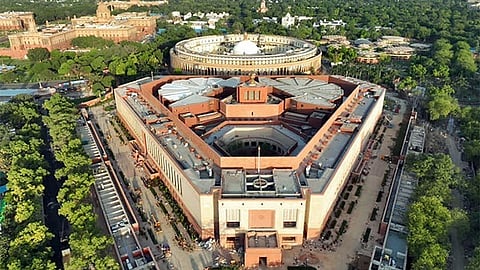

NEW DELHI: Parliament on Tuesday passed the Disaster Management (Amendment) Bill 2024, with Rajya Sabha approving the legislation by a voice vote, despite strong opposition criticism over alleged political bias in disaster relief efforts.
The bill, which aims to enhance the efficiency of national and state disaster management authorities, was earlier passed by the Lok Sabha on 1 December.
During the discussion in the Rajya Sabha, opposition members proposed several amendments, all of which were rejected by the majority. While opposition parties accused the Centre of favouritism in disaster response, Union Home Minister Amit Shah defended the bill, asserting that it would help states handle disasters more effectively.
“The states faced difficulties in implementing the Disaster Management Act of 2005. The proposed amendments are based on the difficulties flagged by states and suggestions given by them,” Shah said.
He emphasised that the bill would define the roles and responsibilities of various organisations involved in disaster management, ensuring better coordination and uniformity in responses.
Opposition members, particularly from Kerala, criticised the Centre’s handling of the disaster in Wayanad, accusing it of insensitivity. Shah, however, dismissed the allegations, stating that the bill does not infringe on the federal structure.
“The primary responsibility for disaster management lies with the District Disaster Management Authority (DDMA), which operates under the state government,” he said.
Highlighting the decentralised approach to disaster response funding, Shah noted that financial assistance would be allocated at state and district levels. “If there was bias, it was because of the law made by the UPA government in 2005. We have not changed that framework. In fact, we have provided states with more financial assistance than what the Finance Commission had recommended,” he said.
Shah also reiterated that disaster management is a shared responsibility between the Centre and the states. “Prime Minister Narendra Modi’s 10-point agenda on disaster risk reduction has been accepted by over 40 countries. This is not just the Centre’s responsibility, it involves state governments, local bodies and every citizen,” he added.